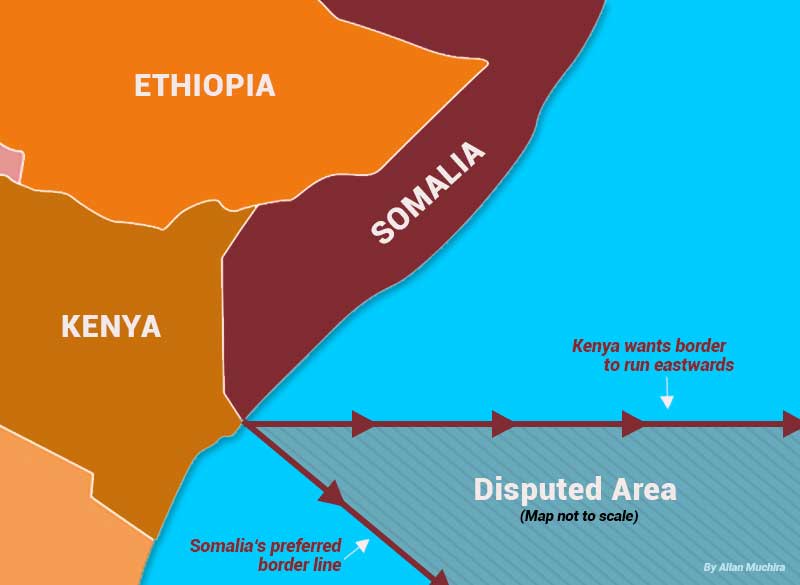Kenya defends move of withdrawing from maritime border case with Somalia

Kenya has defended its decision to withdraw from the ongoing oral hearings of the Kenya-Somalia maritime case at the International Court of Justice citing procedural unfairness.
In the latest development, Kenya has informed the Court that any insistence on its participation in the proceedings, defeats Kenya’s right to a fair hearing.
According to a brief from the ministry of foreign affairs, Kenya has collected, and continues to collect substantial additional evidence in the matter, information it says will be of value only if Kenya is given ample opportunity to prepare it for proper and effective presentation to the Court.
According to Nairobi, the current timelines – and in the context of the coronavirus pandemic – have not afforded Kenya such an opportunity.
Kenya has also informed the Court over what it says are influential third party commercial interests that are fueling the case that threatens to destabilize the peace and security of an already fragile region. Kenya questioning the speed at which the matter was rushed before the Court and the players involved in the dispute, which it says point to a well-orchestrated strategy of pitting the countries against each other in total disregard to the precarious security situation in the region.
According to Nairobi, influential third parties are intent on using instability in Somalia to advance predatory commercial interests with little regard to peace and security in the region.
Kenya says it remains confident in its position that there is an existing maritime boundary that was established in 1979.
“The boundary as established has been respected by both Countries until 2014 when Somalia attempted to repudiate the agreement by dragging Kenya to the International Court of Justice seeking to appropriate Kenya’s maritime space” reads the statement.
In the brief, Kenya says that its concerns have also been exacerbated by previous decisions taken by the Court which has created a perception of unfairness and injustice including amendment by the Court to its rules to allow for hearings to be conducted via video link without consultation of member states prior to the issuance of the hearing dates for this case.
Kenya says it has consistently communicated to the Court its reasons for seeking a deferment of the case including the Covid-19 situation which struck when the country had just recruited a new legal team, conditions that hampered its ability to prepare adequately for the hearing.
Kenya argues that the court has failed to appreciate that it is exactly where it was at the beginning of 2020 with regard to its compilation of its international legal team.
“Without such necessary preparations, Kenya is of the considered view that any participation in the hearing will be nothing more than a perfunctory, cosmetic and symbolic exercise” Kenya observes.
In its view, Kenya says the seriousness of the case requires proper and adequate preparation.
“In Kenya’s view, it would be ill-advised for it to participate in a complex case with far-reaching consequences, without such proper and adequate preparation. These and other related matters have forced Kenya to stand back from the court and to continue to insist that the resolution of this border dispute belongs in its rightful place on the bilateral and or continental platform” submits Kenya in its brief.
In a letter to Philippe Gautier, the Registrar at the ICJ, Kenya re-affirmed that it was not properly before the court in accordance with its acceptance of the court’s jurisdiction.
Kenya had outlined that while it had no doubt about the merits of its case, procedural unfairness had left doubt on whether substantive justice would be done.
Kenya re-stated that it should not have been dragged to the Court by Somalia merely because of the neighbor’s resurgent expansionist agenda. Kenya also noted that the composition of the membership of the bench conducting the case reinforced concerns of bias, citing the case of Somali Citizen, Judge Abdulqawi Yusuf, who sits on the ICJ and who has previously represented Somalia at the Third United Nations Conference on the law of the sea.





